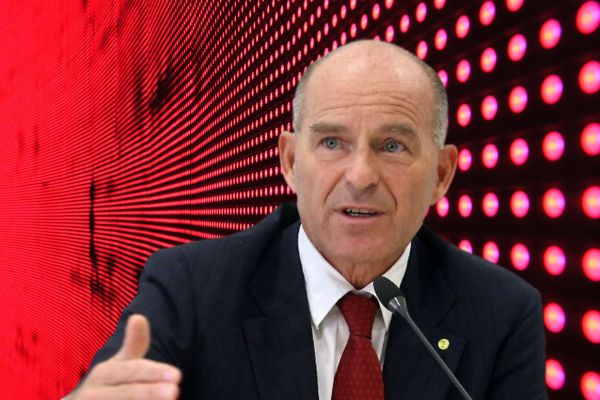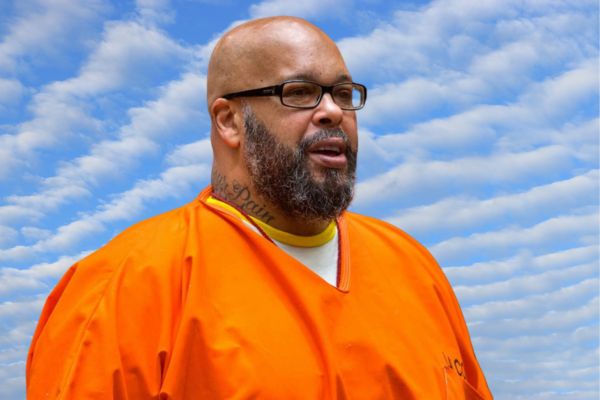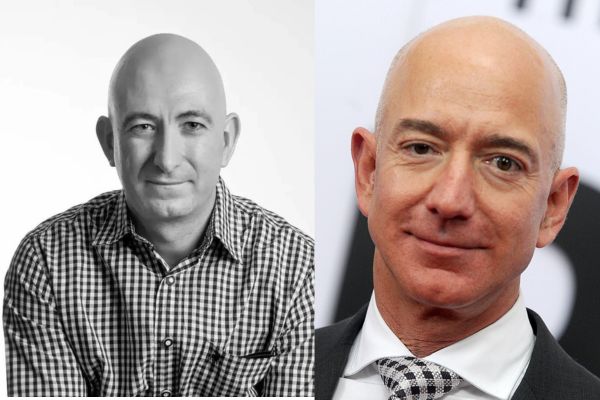window._wpemojiSettings = {"baseUrl":"https:\/\/s.w.org\/images\/core\/emoji\/15.0.3\/72x72\/","ext":".png","svgUrl":"https:\/\/s.w.org\/images\/core\/emoji\/15.0.3\/svg\/","svgExt":".svg","source":{"concatemoji":"https:\/\/www.uniquenewsonline.com\/wp-includes\/js\/wp-emoji-release.min.js?ver=6.5.2"}};
/*! This file is auto-generated */
!function(i,n){var o,s,e;function c(e){try{var t={supportTests:e,timestamp:(new Date).valueOf()};sessionStorage.setItem(o,JSON.stringify(t))}catch(e){}}function p(e,t,n){e.clearRect(0,0,e.canvas.width,e.canvas.height),e.fillText(t,0,0);var t=new Uint32Array(e.getImageData(0,0,e.canvas.width,e.canvas.height).data),r=(e.clearRect(0,0,e.canvas.width,e.canvas.height),e.fillText(n,0,0),new Uint32Array(e.getImageData(0,0,e.canvas.width,e.canvas.height).data));return t.every(function(e,t){return e===r[t]})}function u(e,t,n){switch(t){case"flag":return n(e,"\ud83c\udff3\ufe0f\u200d\u26a7\ufe0f","\ud83c\udff3\ufe0f\u200b\u26a7\ufe0f")?!1:!n(e,"\ud83c\uddfa\ud83c\uddf3","\ud83c\uddfa\u200b\ud83c\uddf3")&&!n(e,"\ud83c\udff4\udb40\udc67\udb40\udc62\udb40\udc65\udb40\udc6e\udb40\udc67\udb40\udc7f","\ud83c\udff4\u200b\udb40\udc67\u200b\udb40\udc62\u200b\udb40\udc65\u200b\udb40\udc6e\u200b\udb40\udc67\u200b\udb40\udc7f");case"emoji":return!n(e,"\ud83d\udc26\u200d\u2b1b","\ud83d\udc26\u200b\u2b1b")}return!1}function f(e,t,n){var r="undefined"!=typeof WorkerGlobalScope&&self instanceof WorkerGlobalScope?new OffscreenCanvas(300,150):i.createElement("canvas"),a=r.getContext("2d",{willReadFrequently:!0}),o=(a.textBaseline="top",a.font="600 32px Arial",{});return e.forEach(function(e){o[e]=t(a,e,n)}),o}function t(e){var t=i.createElement("script");t.src=e,t.defer=!0,i.head.appendChild(t)}"undefined"!=typeof Promise&&(o="wpEmojiSettingsSupports",s=["flag","emoji"],n.supports={everything:!0,everythingExceptFlag:!0},e=new Promise(function(e){i.addEventListener("DOMContentLoaded",e,{once:!0})}),new Promise(function(t){var n=function(){try{var e=JSON.parse(sessionStorage.getItem(o));if("object"==typeof e&&"number"==typeof e.timestamp&&(new Date).valueOf()<e.timestamp+604800&&"object"==typeof e.supportTests)return e.supportTests}catch(e){}return null}();if(!n){if("undefined"!=typeof Worker&&"undefined"!=typeof OffscreenCanvas&&"undefined"!=typeof URL&&URL.createObjectURL&&"undefined"!=typeof Blob)try{var e="postMessage("+f.toString()+"("+[JSON.stringify(s),u.toString(),p.toString()].join(",")+"));",r=new Blob([e],{type:"text/javascript"}),a=new Worker(URL.createObjectURL(r),{name:"wpTestEmojiSupports"});return void(a.onmessage=function(e){c(n=e.data),a.terminate(),t(n)})}catch(e){}c(n=f(s,u,p))}t(n)}).then(function(e){for(var t in e)n.supports[t]=e[t],n.supports.everything=n.supports.everything&&n.supports[t],"flag"!==t&&(n.supports.everythingExceptFlag=n.supports.everythingExceptFlag&&n.supports[t]);n.supports.everythingExceptFlag=n.supports.everythingExceptFlag&&!n.supports.flag,n.DOMReady=!1,n.readyCallback=function(){n.DOMReady=!0}}).then(function(){return e}).then(function(){var e;n.supports.everything||(n.readyCallback(),(e=n.source||{}).concatemoji?t(e.concatemoji):e.wpemoji&&e.twemoji&&(t(e.twemoji),t(e.wpemoji)))}))}((window,document),window._wpemojiSettings);
https://www.uniquenewsonline.com/wp-includes/js/jquery/jquery.min.js
https://www.uniquenewsonline.com/wp-includes/js/jquery/jquery-migrate.min.js
var pbLocalizeObj = {"ajax":"https:\/\/www.uniquenewsonline.com\/wp-admin\/admin-ajax.php","seconds":"seconds","thisWillClose":"This will close in","icons":{"close_icon":"<svg class=\"ays_pb_material_close_icon\" xmlns=\"https:\/\/www.w3.org\/2000\/svg\" height=\"36px\" viewBox=\"0 0 24 24\" width=\"36px\" fill=\"#000000\" alt=\"Pop-up Close\"><path d=\"M0 0h24v24H0z\" fill=\"none\"\/><path d=\"M19 6.41L17.59 5 12 10.59 6.41 5 5 6.41 10.59 12 5 17.59 6.41 19 12 13.41 17.59 19 19 17.59 13.41 12z\"\/><\/svg>","close_circle_icon":"<svg class=\"ays_pb_material_close_circle_icon\" xmlns=\"https:\/\/www.w3.org\/2000\/svg\" height=\"24\" viewBox=\"0 0 24 24\" width=\"36\" alt=\"Pop-up Close\"><path d=\"M0 0h24v24H0z\" fill=\"none\"\/><path d=\"M12 2C6.47 2 2 6.47 2 12s4.47 10 10 10 10-4.47 10-10S17.53 2 12 2zm5 13.59L15.59 17 12 13.41 8.41 17 7 15.59 10.59 12 7 8.41 8.41 7 12 10.59 15.59 7 17 8.41 13.41 12 17 15.59z\"\/><\/svg>","volume_up_icon":"<svg class=\"ays_pb_fa_volume\" xmlns=\"https:\/\/www.w3.org\/2000\/svg\" height=\"24\" viewBox=\"0 0 24 24\" width=\"36\"><path d=\"M0 0h24v24H0z\" fill=\"none\"\/><path d=\"M3 9v6h4l5 5V4L7 9H3zm13.5 3c0-1.77-1.02-3.29-2.5-4.03v8.05c1.48-.73 2.5-2.25 2.5-4.02zM14 3.23v2.06c2.89.86 5 3.54 5 6.71s-2.11 5.85-5 6.71v2.06c4.01-.91 7-4.49 7-8.77s-2.99-7.86-7-8.77z\"\/><\/svg>","volume_mute_icon":"<svg xmlns=\"https:\/\/www.w3.org\/2000\/svg\" height=\"24\" viewBox=\"0 0 24 24\" width=\"24\"><path d=\"M0 0h24v24H0z\" fill=\"none\"\/><path d=\"M7 9v6h4l5 5V4l-5 5H7z\"\/><\/svg>"}};
https://www.uniquenewsonline.com/wp-content/plugins/ays-popup-box/public/js/ays-pb-public.js
var breeze_prefetch = {"local_url":"https:\/\/www.uniquenewsonline.com","ignore_remote_prefetch":"1","ignore_list":["\/wp-admin\/"]};
https://www.uniquenewsonline.com/wp-content/plugins/breeze/assets/js/js-front-end/breeze-prefetch-links.min.js
Unique News Online
US slams China’s plan for Hong Kong as ‘death knell’ for autonomy
US slams China’s plan for Hong Kong as ‘death knell’ for autonomy Published
4 years ago on
May 23, 2020 Mike Pompeo, US secretary of state, has slammed China’s move to impose a new national security law on Hong Kong, saying it would be a “death knell” for autonomy in the financial hub and former British colony.
The top US diplomat condemned the move by the National People’s Congress, the Chinese rubber-stamp parliament, to “unilaterally and arbitrarily impose national security legislation on Hong Kong”.
The plan marks the latest effort by China to clamp down on political expression in Hong Kong, which was guaranteed a high degree of autonomy under the “one country, two systems” model agreed by London and Beijing when Britain returned the territory to China in 1997.
“The decision to bypass Hong Kong’s well-established legislative processes and ignore the will of the people of Hong Kong would be a death knell for the high degree of autonomy Beijing promised for Hong Kong,” Mr Pompeo said, adding that it would “impact our assessment of one country, two systems and the status of the territory”.
China has become a wide target in Washington in recent months as Democrats and Republicans become increasingly angry at Beijing. The White House has also taken a tougher position on a range of issues from Huawei, the Chinese telecoms equipment company, to a recent effort to prevent the main US federal pension fund from investing in Chinese companies.
The commerce department on Friday restricted access to US technology for nine Chinese organisations, including the Ministry of Public Security’s Institute of Forensic Science, by adding them to the so-called entity list.
The department said they were “complicit in human rights violations” as part of China’s “campaign of repression, mass arbitrary detention, forced labour and high-technology surveillance against Uighurs” and other minorities in Xinjiang.
In a separate action, it added 24 Chinese government and commercial groups to the entity list for “engaging in activities contrary to the national security or foreign policy interests of the United States”. The entities included Beijing Computational Science Research Center, Harbin Institute of Technology and Chengdu Fine Optical Engineering Research Center.
Marco Rubio, a Republican senator from Florida, said the Chinese move would “push Hong Kong’s autonomy to the breaking point”. He urged Donald Trump to “respond swiftly” and suggested the US president use the tools provided by Congress when it passed the Hong Kong Human Rights and Democracy Act last year.
The act, which was passed with very strong bipartisan support, allows the administration to impose sanctions on individuals who are deemed to have suppressed human rights in Hong Kong.
It also makes it easier for Mr Trump to revoke special economic and trading relations that the US extends to Hong Kong but not to mainland China, which could result in the territory being subject to US tariffs.
Mr Rubio, a leading China hawk who co-authored the act, wrote on Twitter that Hong Kong received special treatment because it was guaranteed a measure of autonomy under the 1984 Sino-British Joint Declaration.
He wrote that any Chinese implementation of the national security law would leave “no choice but to certify HK is no longer autonomous”.
Hong Kong’s stock market suffered its worst one-day fall in almost five years on Friday after Beijing’s move blindsided traders and prompted concerns over the financial hub’s future.
Mr Trump has yet to comment on the Chinese decision, beyond saying that he would address the issue “very strongly”. He has previously given tepid support for pro-democracy protesters in Hong Kong, which critics attributed to his reluctance to jeopardise talks with China that led to an easing of the Sino-US trade war earlier this year.
But in recent months, President Trump has taken a much harsher stance towards China, blaming Beijing for the global spread of coronavirus. Experts expect anti-China sentiment to rise ahead of the US presidential election in November.
Joe Biden, the presumptive Democratic presidential nominee, criticised Mr Trump for not speaking out forcefully, saying the US president’s silence would embolden authoritarian regimes around the world.
“All it does is encourage thugs and dictators,” he told CNBC television. “We should be calling the rest of the world to condemn their actions.”
China has provided limited detail about the new law, which would allow its national security agencies to set up operations directly in Hong Kong.
The move has fuelled concern among multinational companies about the growing influence of Beijing, which has accelerated changes that were not expected until the “one country, two systems” model expires in 2047.*
Under that model, Hong Kong has authority over its own policies, except for foreign affairs and defence. But China has curtailed its autonomy in an effort to curb the pro-democracy protests that sprang up in 2014.
Carrie Lam, Hong Kong’s chief executive, was last year forced to abandon a separate effort to introduce security legislation following mass protests that echoed the so-called umbrella revolution six years ago.
Additional reporting by Michael Peel in Brussels
*This article has been amended to correct the expiry date of the “one country, two systems” model
Follow Demetri Sevastopulo on Twitter: @dimi
(Note: This is a Article Automatically Generated Through Syndication, Here is The Original Source
Passionate news enthusiast with a flair for words. Our Editorial Team author brings you the latest updates, in-depth analysis, and engaging stories. Stay informed with their well-researched articles.
Karl-Erivan Haub Net Worth 2024: How Much is the Former Managing Director of the Tengelmann Group Worth? Published
3 hours ago on
April 20, 2024 Who is Karl-Erivan Haub? Karl-Erivan Haub, a prominent figure in the German retail industry, was born into the influential Haub family on September 29, 1932, in Wiesbaden, Germany. He was the son of Erich Haub and Elizabeth Haub (née Schmitz-Scholl), belonging to the esteemed Mülheim family Schmitz-Scholl, renowned founders of the Tengelmann grocery chain.
Karl-Erivan Haub Career Haub’s career trajectory was marked by his dedication to the Tengelmann Group, one of Germany’s largest retail entities. After completing internships in the United States and obtaining a degree in economics from the University of Hamburg, Haub joined the family business in 1963. He ascended to the position of managing director in 1969, steering the company’s strategic direction towards retail trade expansion. Notable milestones include the acquisition of The Great Atlantic & Pacific Tea Company in 1979, which cemented Tengelmann’s international presence.
Karl-Erivan Haub Net Worth At the time of his passing in March 2018, Karl-Erivan Haub left behind a significant net worth of $6.4 billion. However, recent developments have sparked intrigue, with reports surfacing of his alleged reappearance in Moscow after being declared legally dead in 2021. The circumstances surrounding his net worth remain uncertain amidst this perplexing saga.
Karl-Erivan Haub Age Born on September 29, 1932, Haub would have been 91 years old in 2024 if he had not been declared legally deceased in 2021.
Karl-Erivan Haub Family: Wife and Children Haub was married to Helga Otto in 1958, and together they had three sons: Karl-Erivan, Georg, and Christian W.E. Haub. His dedication to family and philanthropy underscored his personal and professional endeavors, leaving a lasting legacy beyond the business realm.
Karl-Erivan Haub Height and Weight Details regarding Karl-Erivan Haub’s height and weight are not readily available.
Also Read: Amanda Kloots Net Worth 2024: How much is the TV personality and dancer Worth?
Suge Knight Net Worth 2024: How Much is the Co-founder and Former CEO of Death Row Records Worth? Published
3 hours ago on
April 20, 2024 Who is Suge Knight? Suge Knight, born Marion Hugh Knight Jr. on April 19, 1965, in Compton, California, emerged as a pivotal figure in the music industry as the co-founder of Death Row Records. Despite his upbringing in a challenging environment and his brief stint as an NFL replacement player for the Los Angeles Rams, Knight’s true legacy lies in his influential role in shaping West Coast rap culture.
Suge Knight Career Knight’s journey began as a concert promoter and celebrity bodyguard in the late 1980s before he ventured into music publishing. His pivotal moment arrived when he co-founded Death Row Records in 1991 alongside Dr. Dre, The D.O.C., and a silent partner. Under Knight’s guidance, Death Row Records became synonymous with gangsta rap and launched the careers of iconic artists such as Tupac Shakur and Snoop Dogg.
Suge Knight’s Net Worth Despite his significant contributions to the music industry, Suge Knight’s net worth has experienced a significant decline over the years. As of 2024, his estimated net worth stands at $210,000, a stark contrast to his once-mighty empire.
Suge Knight Age At the age of 59, Suge Knight’s journey reflects a tumultuous blend of success and controversy. Born on April 19, 1965, Knight’s impact on hip-hop culture transcends generations, leaving an indelible mark on the industry despite his legal battles and personal challenges.
Suge Knight Family: Wife and Children Knight’s personal life has been as turbulent as his professional career. He has been married multiple times, including to R&B singer Michelle, with whom he shares a daughter named Bailey. Knight’s family life has been marred by legal disputes and controversies, reflecting the complexities of his persona.
Suge Knight Height and Weight Standing tall at 6 feet 2 inches and weighing approximately 120 kg (265 lbs), Suge Knight’s physical presence mirrors his commanding influence in the music industry. His imposing stature, coupled with his robust build, symbolizes the power and authority he wielded during his heyday.
Also Read: Amanda Kloots Net Worth 2024: How much is the TV personality and dancer Worth?
Jeff Bezos Lookalike Cagdas Halicilar Enjoys Lavish Lifestyle By Impersonating The Billionaire Published
21 hours ago on
April 19, 2024 A 46-year-old German man, Cagdas Halicilar, is currently the talk of the town as he has emerged on the internet as Jeff Bezos’ lookalike.
Thus, Cagdas Halicilar has transformed his profession into a professional Jeff Bezos doppleganger from an electrician.
The 46-year-old reveals that now he lives an opulent lifestyle as an entrepreneur.
Cagdas Halicilar was often told by his family and friends that his looks were similar to those of a billionaire. However, only when he saw Jeff Bezos’ picture, did he understand what people around him meant.
The New York Post reported that Halicilar dreamed of becoming a successful business executive. With him founding CB Transporte, a transport company, he lived his dream.
After accepting his resemblance to Jeff Bezos, Cagdas Halicilar enrolled himself at a doppelgänger agency.
Cagdas Halicilar Gained Popularity by Being Jeff Bezos’ Lookalike Most of the time, he dressed up in casual attire which made him look more like a billionaire, as Jeff Bezos also dressed up casually.
Halicilar added, “It doesn’t matter whether I’m wearing a suit or wearing jeans and a polo shirt.”
He added how it requires a bit of effort to maintain his appearance like a billionaire. He shaves his head and applies Nivea cream regularly. The German doppleganger added that he has been doing the same for more than ten years now.
The 46-year-old has gained a lot of popularity and recognition over the years for his work as Jeff Bezos’s doppelgänger. His spouse complained that people often stopped him and asked for selfies on the street.
In the “King of Stonks,” the German Netflix miniseries, he also had a guest spot.
When in Seattle once, Cagdas Halicilar strolled through the Amazon campus. Surprisingly, Amazon employees thought that he was Jeff Bezos, reported TimesNow .
He said,
“All the Amazon employees came to me, wanted selfies and thanked me for being proud to work at Amazon.”
Furthermore, he added,
“My wish is to drink a whiskey with Jeff Bezos on his yacht. He is just as much of a yacht fanatic as I am.”
Also Read: Twitch Streamer Maya Higa Opens Up About Horrific Stalker Incident During Recent Livestream
(adsbygoogle = window.adsbygoogle || []).push({});
(adsbygoogle = window.adsbygoogle || []).push({});
(adsbygoogle = window.adsbygoogle || []).push({});
(adsbygoogle = window.adsbygoogle || []).push({});
(adsbygoogle = window.adsbygoogle || []).push({});
(adsbygoogle = window.adsbygoogle || []).push({});
(adsbygoogle = window.adsbygoogle || []).push({});
(adsbygoogle = window.adsbygoogle || []).push({});
(adsbygoogle = window.adsbygoogle || []).push({});
(adsbygoogle = window.adsbygoogle || []).push({});
(adsbygoogle = window.adsbygoogle || []).push({});
(adsbygoogle = window.adsbygoogle || []).push({});
(adsbygoogle = window.adsbygoogle || []).push({});
(adsbygoogle = window.adsbygoogle || []).push({});
(adsbygoogle = window.adsbygoogle || []).push({});
(adsbygoogle = window.adsbygoogle || []).push({});
(adsbygoogle = window.adsbygoogle || []).push({});
(adsbygoogle = window.adsbygoogle || []).push({});
(adsbygoogle = window.adsbygoogle || []).push({});
if (window.innerWidth < 768) { jQuery(document).find('.ays-pb-modal_2').css({'top': '0', 'right': '0', 'bottom': '0', 'left': '0'}); } else { jQuery(document).find('.ays-pb-modal_2').css({'top': '0', 'right': '0', 'bottom': '0', 'left': '0'}); }
(function( $ ) {
'use strict';
$(document).ready(function(){
let pbViewsFlag_2 = true;
if ('image_type_img_theme' == 'notification') {
$(document).find('.ays-pb-modals').prependTo($(document.body));
} else {
$(document).find('.ays-pb-modals:not(.ays-pb-modals.ays-pb-notification-modal)').appendTo($(document.body));
}
let isMobile = false;
let closePopupOverlay = 1;
let isPageScrollDisabled = 0;
let checkAnimSpeed = 1;
let ays_pb_animation_close_speed = $(document).find('#ays_pb_animation_close_speed_2').val();
let ays_pb_effectIn_2 = $(document).find('#ays_pb_modal_animate_in_2').val();
let ays_pb_effectOut_2 = $(document).find('#ays_pb_modal_animate_out_2').val();
if (window.innerWidth < 768) {
isMobile = true;
closePopupOverlay = 1;
isPageScrollDisabled = 0;
checkAnimSpeed = 1;
ays_pb_animation_close_speed = $(document).find('#ays_pb_animation_close_speed_mobile_2').val();
ays_pb_effectIn_2 = $(document).find('#ays_pb_modal_animate_in_mobile_2').val();
ays_pb_effectOut_2 = $(document).find('#ays_pb_modal_animate_out_mobile_2').val();
}
let ays_pb_delayOpen_2 = parseInt($(document).find('.ays_pb_delay_2').val());
let ays_pb_scrollTop_2 = parseInt($(document).find('.ays_pb_scroll_2').val());
if (isMobile) {
if (0) {
ays_pb_scrollTop_2= parseInt($(document).find('.ays_pb_scroll_mobile_2').val());
}if (0) {
ays_pb_delayOpen_2 = parseInt($(document).find('.ays_pb_delay_mobile_2').val());
}
}
let time_pb_2 = $(document).find('.ays_pb_timer_2 span').data('seconds'),
ays_pb_animation_close_seconds = (ays_pb_animation_close_speed / 1000);
if( ays_pb_delayOpen_2 == 0 && ays_pb_scrollTop_2 == 0){
$(document).find('.av_pop_modals_2').css('display','block');
}if (window.innerWidth < 768) {
var mobileTimer = +$(document).find('.ays_pb_timer_2 span').attr('data-ays-mobile-seconds');
$(document).find('.ays_pb_timer_2 span').html(mobileTimer);
time_pb_2 = mobileTimer;
}ays_pb_animation_close_speed = parseFloat(ays_pb_animation_close_speed) - 50;$(document).find('.ays_music_sound').css({'display':'none'});
if(time_pb_2 !== undefined){
if(time_pb_2 !== 0){
$(document).find('#ays-pb-modal-checkbox_2').trigger('click');
if(ays_pb_scrollTop_2 == 0){
var ays_pb_flag = true;
$(document).find('.ays-pb-modal_2').css({
'animation-duration': ays_pb_animation_close_seconds + 's'
});
let timer_pb_2 = setInterval(function(){
let newTime_pb_2 = time_pb_2--;
$(document).find('.ays_pb_timer_2 span').text(newTime_pb_2);
if(newTime_pb_2 <= 0){
$(document).find('.ays-pb-modal-close_2').trigger('click');
$(document).find('.ays-pb-modal_2').attr('class', 'ays-pb-modal ays-pb-modal-image-type-img ays-pb-modal_2 ays-pb-border-mobile_2 '+ays_pb_effectOut_2);
if(ays_pb_effectOut_2 != 'none'){
setTimeout(function(){
$(document).find('.ays-pb-modal_2').css('display', 'none');
$(document).find('.ays-pb-modal_2').attr('data-ays-flag','true');
}, ays_pb_animation_close_speed);
}else{
$(document).find('.ays-pb-modal_2').css('display', 'none');
$(document).find('.ays-pb-modal_2').attr('data-ays-flag','true');
}
clearInterval(timer_pb_2);
}
$(document).find('.ays-pb-modal-close_2').one('click', function(){
if (pbViewsFlag_2) {
var pb_id = 2;$.ajax({
url: pbLocalizeObj.ajax,
method: 'POST',
dataType: 'text',
data: {
id: pb_id,
action: 'ays_increment_pb_views',
},
});pbViewsFlag_2 = false;
}
$(document).find('.av_pop_modals_2').css('pointer-events', 'none');
$(document).find('.ays-pb-modal_2').attr('class', 'ays-pb-modal ays-pb-modal-image-type-img ays-pb-modal_2 ays-pb-border-mobile_2 '+ays_pb_effectOut_2);
$(this).parents('.ays-pb-modals').find('iframe').each(function(){
var key = /https:\/\/www.youtube.com/;
var src = $(this).attr('src');
$(this).attr('src', $(this).attr('src'));
});
$(this).parents('.ays-pb-modals').find('video.wp-video-shortcode').each(function(){
if(typeof $(this).get(0) != 'undefined'){
if ( ! $(this).get(0).paused ) {
$(this).get(0).pause();
}
}
});
$(this).parents('.ays-pb-modals').find('audio.wp-audio-shortcode').each(function(){
if(typeof $(this).get(0) != 'undefined'){
if ( ! $(this).get(0).paused ) {
$(this).get(0).pause();
}
}
});
var close_sound_src = $(document).find('#ays_pb_close_sound_2').attr('src');
if(checkAnimSpeed && typeof close_sound_src !== 'undefined' && 'off' === 'on'){
if(checkAnimSpeed !== 0){
var playPromise = $(document).find('#ays_pb_close_sound_2').get(0).play();
if (playPromise !== undefined) {
playPromise.then(function() {
audio.pause();
}).catch(function(error) {
});
}
}
}
if(ays_pb_effectOut_2 != 'none'){
setTimeout(function(){
$(document).find('.ays-pb-modal_2').css('display', 'none');
$(document).find('.av_pop_modals_2').css('display', 'none');
$(document).find('.ays-pb-modal_2').attr('data-ays-flag','true');
if($('#ays_pb_close_sound_2').get(0) != undefined){
if(!$('#ays_pb_close_sound_2').get(0).paused){
$(document).find('.ays-pb-modal_2').css('display', 'none');
var audio = $('#ays_pb_close_sound_2').get(0);
audio.pause();
audio.currentTime = 0;
}
}
}, ays_pb_animation_close_speed);
}else{
$(document).find('.ays-pb-modal_2').css('display', 'none');
$(document).find('.av_pop_modals_2').css('display', 'none');
$(document).find('.ays-pb-modal_2').attr('data-ays-flag','true');
if($('#ays_pb_close_sound_2').get(0) != undefined){
if(!$('#ays_pb_close_sound_2').get(0).paused){
$(document).find('.ays-pb-modal_2').css('display', 'none');
var audio = $('#ays_pb_close_sound_2').get(0);
audio.pause();
audio.currentTime = 0;
}
}
}
$(document).find('#ays-pb-screen-shade_2').css({'opacity': '0', 'display': 'none'});
clearInterval(timer_pb_2);
});
$(document).on('keydown', function(event) {
if('1' && ays_pb_flag){
var escClosingPopups = $(document).find('.ays-pb-close-popup-with-esc:visible');
if (event.keyCode == 27) {
var topmostPopup = escClosingPopups.last();
topmostPopup.find('.ays-pb-modal-close_2').trigger('click');
}
} else {
ays_pb_flag = true;
}
ays_pb_flag = false;
});
},1000);
if(closePopupOverlay && 'On' == 'On'){
$(document).find('.av_pop_modals_2').on('click', function(e) {
var pb_parent = $(this);
var pb_div = $(this).find('.ays-pb-modal_2');
if (!pb_div.is(e.target) && pb_div.has(e.target).length === 0){
$(document).find('.ays-pb-modal-close_2').click();
}
});
}
}
} else {
$(document).find('.ays_pb_timer_2').css('display','none');
$(document).find('.ays-pb-modal_2').css({
'animation-duration': ays_pb_animation_close_seconds + 's'
});
$(document).find('.ays-pb-modal-close_2').one('click', function(){
if (pbViewsFlag_2) {
var pb_id = 2;$.ajax({
url: pbLocalizeObj.ajax,
method: 'POST',
dataType: 'text',
data: {
id: pb_id,
action: 'ays_increment_pb_views',
},
});pbViewsFlag_2 = false;
}
$(document).find('.av_pop_modals_2').css('pointer-events', 'none');
$(document).find('.ays-pb-modal_2').attr('class', 'ays-pb-modal ays-pb-modal-image-type-img ays-pb-modal_2 ays-pb-border-mobile_2 '+ays_pb_effectOut_2);
$(this).parents('.ays-pb-modals').find('iframe').each(function(){
var key = /https:\/\/www.youtube.com/;
var src = $(this).attr('src');
$(this).attr('src', $(this).attr('src'));
});
$(this).parents('.ays-pb-modals').find('video.wp-video-shortcode').each(function(){
if(typeof $(this).get(0) != 'undefined'){
if ( ! $(this).get(0).paused ) {
$(this).get(0).pause();
}
}
});
$(this).parents('.ays-pb-modals').find('audio.wp-audio-shortcode').each(function(){
if(typeof $(this).get(0) != 'undefined'){
if ( ! $(this).get(0).paused ) {
$(this).get(0).pause();
}
}
});
if(ays_pb_effectOut_2 != 'none'){
setTimeout(function(){
$(document).find('.ays-pb-modal_2').css('display', 'none');
$(document).find('.av_pop_modals_2').css('display', 'none');
$(document).find('.ays-pb-modal_2').attr('data-ays-flag','true');
if($('#ays_pb_close_sound_2').get(0) != undefined){
if(!$('#ays_pb_close_sound_2').get(0).paused){
$(document).find('.ays-pb-modal_2').css('display', 'none');
var audio = $('#ays_pb_close_sound_2').get(0);
audio.pause();
audio.currentTime = 0;
}
}
}, ays_pb_animation_close_speed);
}else{
$(document).find('.ays-pb-modal_2').css('display', 'none');
$(document).find('.av_pop_modals_2').css('display', 'none');
$(document).find('.ays-pb-modal_2').attr('data-ays-flag','true');
if($('#ays_pb_close_sound_2').get(0) != undefined){
if(!$('#ays_pb_close_sound_2').get(0).paused){
$(document).find('.ays-pb-modal_2').css('display', 'none');
var audio = $('#ays_pb_close_sound_2').get(0);
audio.pause();
audio.currentTime = 0;
}
}
}
$(document).find('#ays-pb-screen-shade_2').css({'opacity': '0', 'display': 'none'});
});
}
}
let count = 0;
if( ays_pb_scrollTop_2 !== 0 ){
$(window).scroll(function() {
if(($(this).scrollTop() >= ays_pb_scrollTop_2) && (count === 0)) {
count++;
if( ays_pb_delayOpen_2 !== 0 ){
$(document).find('.ays-pb-modal_2').css('animation-delay', ays_pb_delayOpen_2/1000);
setTimeout(function(){
$(document).find('.av_pop_modals_2').css('display','block');
$(document).find('.ays-pb-modal_2').addClass(ays_pb_effectIn_2);
$(document).find('.ays-pb-modal_2').css('display', 'block');
if (window.innerWidth < 768 && $(document).find('#ays-pb-screen-shade_2').attr('data-mobile-overlay') == 'true') {
$(document).find('#ays-pb-screen-shade_2').css({'opacity': '0.5'});
}
else{
$(document).find('#ays-pb-screen-shade_2').css({'opacity': '0.500000'});
}$(document).find('.ays-pb-modal-check_2').prop('checked', true);
}, ays_pb_delayOpen_2);
}else{
$(document).find('.av_pop_modals_2').css('display','block');
$(document).find('.ays-pb-modal_2').addClass(ays_pb_effectIn_2);
$(document).find('.ays-pb-modal_2').css('display', 'block');
if (window.innerWidth < 768 && $(document).find('#ays-pb-screen-shade_2').attr('data-mobile-overlay') == 'true') {
$(document).find('#ays-pb-screen-shade_2').css({'opacity': '0.5'});
}
else{
$(document).find('#ays-pb-screen-shade_2').css({'opacity': '0.500000'});
}$(document).find('.ays-pb-modal-check_2').prop('checked', true);
}
if('false' == 'true' && window.innerWidth < 768){
if(0 != 0 && 'off' != 'on'){
let close_button_delay_for_mobile = 0;
if (ays_pb_delayOpen_2 != 0) {
close_button_delay_for_mobile += Math.floor(ays_pb_delayOpen_2);
}
$(document).find('.ays-pb-modal-close_2').css({'display': 'none'});
setTimeout(function(){
$(document).find('.ays-pb-modal-close_2').css({'display': 'block'});
}, close_button_delay_for_mobile );
}
}
else {
if(0 != 0 && 'off' != 'on'){
let close_button_delay = 0;
if (ays_pb_delayOpen_2 != 0) {
close_button_delay += Math.floor(ays_pb_delayOpen_2);
}
$(document).find('.ays-pb-modal-close_2').css({'display': 'none'});
setTimeout(function(){
$(document).find('.ays-pb-modal-close_2').css({'display': 'block'});
}, close_button_delay );
}
}
if(5 != 0){
$(document).find('.ays-pb-modal_2').css({
'animation-duration': ays_pb_animation_close_seconds + 's'
});
let timer_pb_2 = setInterval(function(){
let newTime_pb_2 = time_pb_2--;
$(document).find('.ays_pb_timer_2 span').text(newTime_pb_2);
if(newTime_pb_2 <= 0){
$(document).find('.ays-pb-modal-close_2').trigger('click');
$(document).find('.ays-pb-modal_2').attr('class', 'ays-pb-modal ays-pb-modal-image-type-img ays-pb-modal_2 '+ays_pb_effectOut_2);
if(ays_pb_effectOut_2 != 'none'){
setTimeout(function(){
$(document).find('.ays-pb-modal_2').css('display', 'none');
$(document).find('.ays-pb-modal_2').attr('data-ays-flag','true');
}, ays_pb_animation_close_speed);
}else{
$(document).find('.ays-pb-modal_2').css('display', 'none');
$(document).find('.ays-pb-modal_2').attr('data-ays-flag','true');
}
clearInterval(timer_pb_2);
}
$(document).find('.ays-pb-modal-close_2').one('click', function(){
if (pbViewsFlag_2) {
var pb_id = 2;$.ajax({
url: pbLocalizeObj.ajax,
method: 'POST',
dataType: 'text',
data: {
id: pb_id,
action: 'ays_increment_pb_views',
},
});pbViewsFlag_2 = false;
}
$(document).find('.av_pop_modals_2').css('pointer-events', 'none');
$(document).find('.ays-pb-modal_2').attr('class', 'ays-pb-modal ays-pb-modal-image-type-img ays-pb-modal_2 ays-pb-border-mobile_2 '+ays_pb_effectOut_2);
$(this).parents('.ays-pb-modals').find('iframe').each(function(){
var key = /https:\/\/www.youtube.com/;
var src = $(this).attr('src');
$(this).attr('src', $(this).attr('src'));
});
$(this).parents('.ays-pb-modals').find('video.wp-video-shortcode').each(function(){
if(typeof $(this).get(0) != 'undefined'){
if ( ! $(this).get(0).paused ) {
$(this).get(0).pause();
}
}
});
$(this).parents('.ays-pb-modals').find('audio.wp-audio-shortcode').each(function(){
if(typeof $(this).get(0) != 'undefined'){
if ( ! $(this).get(0).paused ) {
$(this).get(0).pause();
}
}
});
if(ays_pb_effectOut_2 != 'none'){
setTimeout(function(){
$(document).find('.ays-pb-modal_2').css('display', 'none');
$(document).find('.av_pop_modals_2').css('display', 'none');
$(document).find('.ays-pb-modal_2').attr('data-ays-flag','true');
if($('#ays_pb_close_sound_2').get(0) != undefined){
if(!$('#ays_pb_close_sound_2').get(0).paused){
$(document).find('.ays-pb-modal_2').css('display', 'none');
var audio = $('#ays_pb_close_sound_2').get(0);
audio.pause();
audio.currentTime = 0;
}
}
}, ays_pb_animation_close_speed);
}else{
$(document).find('.ays-pb-modal_2').css('display', 'none');
$(document).find('.av_pop_modals_2').css('display', 'none');
$(document).find('.ays-pb-modal_2').attr('data-ays-flag','true');
if($('#ays_pb_close_sound_2').get(0) != undefined){
if(!$('#ays_pb_close_sound_2').get(0).paused){
$(document).find('.ays-pb-modal_2').css('display', 'none');
var audio = $('#ays_pb_close_sound_2').get(0);
audio.pause();
audio.currentTime = 0;
}
}
}
$(document).find('#ays-pb-screen-shade_2').css({'opacity': '0', 'display': 'none'});
clearInterval(timer_pb_2);
});
var ays_pb_flag = true;
$(document).on('keydown', function(event) {
if('1' && ays_pb_flag){
var escClosingPopups = $(document).find('.ays-pb-close-popup-with-esc:visible');
if (event.keyCode == 27) {
var topmostPopup = escClosingPopups.last();
topmostPopup.find('.ays-pb-modal-close_2').trigger('click');
ays_pb_flag = false;
}
} else {
ays_pb_flag = true;
}
});
},1000);
}
}
});
}else{
if( ays_pb_delayOpen_2 !== 0 ){
$(document).find('.ays-pb-modal_2').css('animation-delay', ays_pb_delayOpen_2/1000);
setTimeout(function(){
$(document).find('.av_pop_modals_2').css('display','block');
$(document).find('.ays-pb-modal_2').addClass(ays_pb_effectIn_2);
$(document).find('.ays-pb-modal_2').css('display', 'block');
if (window.innerWidth < 768 && $(document).find('#ays-pb-screen-shade_2').attr('data-mobile-overlay') == 'true') {
$(document).find('#ays-pb-screen-shade_2').css({'opacity': '0.5'});
}
else{
$(document).find('#ays-pb-screen-shade_2').css({'opacity': '0.500000'});
}
$(document).find('.ays-pb-modal-check_2').attr('checked', 'checked');if(isPageScrollDisabled){
$(document).find('body').addClass('pb_disable_scroll_2');
$(document).find('html').removeClass('pb_enable_scroll');
}}, ays_pb_delayOpen_2);
} else {
if($(document).find('.ays_pb_abt_2').val() != 'clickSelector'){
$(document).find('.av_pop_modals_2').css('display','block');
$(document).find('.ays-pb-modal_2').addClass(ays_pb_effectIn_2);
$(document).find('.ays-pb-modal_2').css('display', 'block');
if (window.innerWidth < 768 && $(document).find('#ays-pb-screen-shade_2').attr('data-mobile-overlay') == 'true') {
$(document).find('#ays-pb-screen-shade_2').css({'opacity': '0.5'});
}
else{
$(document).find('#ays-pb-screen-shade_2').css({'opacity': '0.500000'});
}
$(document).find('.ays-pb-modal-check_2').attr('checked', 'checked');if(isPageScrollDisabled){
$(document).find('body').addClass('pb_disable_scroll_2');
$(document).find('html').addClass('pb_disable_scroll_2');
}
}
}
}
if ('On' != 'On'){
$(document).find('#ays-pb-screen-shade_2').css({'opacity': '0', 'display': 'none !important', 'pointer-events': 'none', 'background': 'none'});
$(document).find('.ays-pb-modal_2').css('pointer-events', 'auto');
$(document).find('.av_pop_modals_2').css('pointer-events','none');
};
if($(document).find('.ays-pb-modals video').hasClass('wp-video-shortcode')){
var videoWidth = $(document).find('.ays-pb-modals video.wp-video-shortcode').attr('width');
var videoHeight = $(document).find('.ays-pb-modals video.wp-video-shortcode').attr('height');
setTimeout(function(){
$(document).find('.ays-pb-modals .wp-video').removeAttr('style');
$(document).find('.ays-pb-modals .mejs-container').removeAttr('style');
$(document).find('.ays-pb-modals video.wp-video-shortcode').removeAttr('style');$(document).find('.ays-pb-modals .wp-video').css({'width': '100%'});
$(document).find('.ays-pb-modals .mejs-container').css({'width': '100%','height': videoHeight + 'px'});
$(document).find('.ays-pb-modals video.wp-video-shortcode').css({'width': '100%','height': videoHeight + 'px'});
},1000);
}
if($(document).find('.ays-pb-modals iframe').attr('style') != ''){
setTimeout(function(){
$(document).find('.ays-pb-modals iframe').removeAttr('style');
},500);
}
// if(5 == 0){
if(closePopupOverlay && 'On' == 'On'){
$(document).find('.av_pop_modals_2').on('click', function(e) {
var pb_parent = $(this);
var pb_div = $(this).find('.ays-pb-modal_2');
if (!pb_div.is(e.target) && pb_div.has(e.target).length === 0){
$(document).find('.ays-pb-modal-close_2').click();
}
});
}
var ays_pb_flag = true;
$(document).on('keydown', function(event) {
if('1' && ays_pb_flag){
var escClosingPopups = $(document).find('.ays-pb-close-popup-with-esc:visible');
if (event.keyCode == 27) {
var topmostPopup = escClosingPopups.last();
topmostPopup.find('.ays-pb-modal-close_2').trigger('click');
ays_pb_flag = false;
}
} else {
ays_pb_flag = true;
}
});
// }
if('off' == 'on') {
var video = $(document).find('video.wp-video-shortcode');
for (let i = 0; i < video.length; i++) {
video[i].addEventListener('ended', function() {
if ($(this).next().val() === 'on') {
$(this).parents('.ays_video_window').find('.close-image-btn').trigger('click');
}
});
}
}
jQuery(document).on('click', '.ays-pb-modal-close_2', function() {
$(document).find('body').removeClass('pb_disable_scroll_2');
$(document).find('html').removeClass('pb_disable_scroll_2');
});});
})( jQuery );
if(typeof aysPopupOptions === "undefined"){
var aysPopupOptions = [];
}
aysPopupOptions["2"] = "eyJwb3B1cGJveCI6eyJpZCI6IjIiLCJ0aXRsZSI6IkFkIiwicG9wdXBfbmFtZSI6IiIsImRlc2NyaXB0aW9uIjoiRGVtbyBEZXNjcmlwdGlvbiIsImNhdGVnb3J5X2lkIjoiMSIsImF1dG9jbG9zZSI6IjUiLCJjb29raWUiOiIxNDQwIiwid2lkdGgiOjQwMCwiaGVpZ2h0Ijo1MDAsImJnY29sb3IiOiIjZmZmZmZmIiwidGV4dGNvbG9yIjoiIzAwMDAwMCIsImJvcmRlcnNpemUiOiIxIiwiYm9yZGVyY29sb3IiOiIjZmZmZmZmIiwiYm9yZGVyX3JhZGl1cyI6IjQiLCJzaG9ydGNvZGUiOiIiLCJ1c2Vyc19yb2xlIjoiW10iLCJjdXN0b21fY2xhc3MiOiIiLCJjdXN0b21fY3NzIjoiIiwiY3VzdG9tX2h0bWwiOiJIZXJlIGNhbiBiZSB5b3VyIGN1c3RvbSBIVE1MIG9yIFNob3J0Y29kZSIsIm9ub2Zmc3dpdGNoIjoiT24iLCJzaG93X29ubHlfZm9yX2F1dGhvciI6Im9mZiIsInNob3dfYWxsIjoiYWxsIiwiZGVsYXkiOiIzIiwic2Nyb2xsX3RvcCI6IjAiLCJhbmltYXRlX2luIjoiZmFkZUluIiwiYW5pbWF0ZV9vdXQiOiJmYWRlT3V0IiwiYWN0aW9uX2J1dHRvbiI6IiIsInZpZXdfcGxhY2UiOiIiLCJhY3Rpb25fYnV0dG9uX3R5cGUiOiJwYWdlTG9hZGVkIiwibW9kYWxfY29udGVudCI6ImltYWdlX3R5cGUiLCJ2aWV3X3R5cGUiOiJpbWFnZV90eXBlX2ltZ190aGVtZSIsIm9ub2Zmb3ZlcmxheSI6Ik9uIiwib3ZlcmxheV9vcGFjaXR5IjoiMC41MDAwMDAiLCJzaG93X3BvcHVwX3RpdGxlIjoiT2ZmIiwic2hvd19wb3B1cF9kZXNjIjoiT2ZmIiwiY2xvc2VfYnV0dG9uIjoib2ZmIiwiaGVhZGVyX2JnY29sb3IiOiIjZmZmZmZmIiwiYmdfaW1hZ2UiOiIiLCJsb2dfdXNlciI6Ik9uIiwiZ3Vlc3QiOiJPbiIsImFjdGl2ZV9kYXRlX2NoZWNrIjoib2ZmIiwiYWN0aXZlSW50ZXJ2YWwiOiIyMDI0LTA0LTE5IDE2OjA0OjE3IiwiZGVhY3RpdmVJbnRlcnZhbCI6IjIwMjQtMDQtMTkgMTY6MDQ6MTciLCJwYl9wb3NpdGlvbiI6ImNlbnRlci1jZW50ZXIiLCJwYl9tYXJnaW4iOiIwIiwidmlld3MiOiI5MDAyIiwiY29udmVyc2lvbnMiOiIwIiwib3B0aW9ucyI6IntcImVuYWJsZV9iYWNrZ3JvdW5kX2dyYWRpZW50XCI6XCJvZmZcIixcImJhY2tncm91bmRfZ3JhZGllbnRfY29sb3JfMVwiOlwiIzAwMFwiLFwiYmFja2dyb3VuZF9ncmFkaWVudF9jb2xvcl8yXCI6XCIjZmZmXCIsXCJwYl9ncmFkaWVudF9kaXJlY3Rpb25cIjpcInZlcnRpY2FsXCIsXCJlbmFibGVfYmFja2dyb3VuZF9ncmFkaWVudF9tb2JpbGVcIjpcIm9mZlwiLFwiYmFja2dyb3VuZF9ncmFkaWVudF9jb2xvcl8xX21vYmlsZVwiOlwiIzAwMFwiLFwiYmFja2dyb3VuZF9ncmFkaWVudF9jb2xvcl8yX21vYmlsZVwiOlwiI2ZmZlwiLFwicGJfZ3JhZGllbnRfZGlyZWN0aW9uX21vYmlsZVwiOlwidmVydGljYWxcIixcImV4Y2VwdF9wb3N0X3R5cGVzXCI6W10sXCJleGNlcHRfcG9zdHNcIjpbXSxcImFsbF9wb3N0c1wiOlwiXCIsXCJjbG9zZV9idXR0b25fZGVsYXlcIjowLFwiY2xvc2VfYnV0dG9uX2RlbGF5X2Zvcl9tb2JpbGVcIjowLFwiZW5hYmxlX2Nsb3NlX2J1dHRvbl9kZWxheV9mb3JfbW9iaWxlXCI6XCJvZmZcIixcImVuYWJsZV9wYl9zb3VuZFwiOlwib2ZmXCIsXCJvdmVybGF5X2NvbG9yXCI6XCIjMDAwXCIsXCJlbmFibGVfb3ZlcmxheV9jb2xvcl9tb2JpbGVcIjpcIm9mZlwiLFwib3ZlcmxheV9jb2xvcl9tb2JpbGVcIjpcIiMwMDBcIixcImFuaW1hdGlvbl9zcGVlZFwiOjEsXCJlbmFibGVfYW5pbWF0aW9uX3NwZWVkX21vYmlsZVwiOlwib2ZmXCIsXCJhbmltYXRpb25fc3BlZWRfbW9iaWxlXCI6MSxcImNsb3NlX2FuaW1hdGlvbl9zcGVlZFwiOjEsXCJlbmFibGVfY2xvc2VfYW5pbWF0aW9uX3NwZWVkX21vYmlsZVwiOlwib2ZmXCIsXCJjbG9zZV9hbmltYXRpb25fc3BlZWRfbW9iaWxlXCI6MSxcInBiX21vYmlsZVwiOlwib2ZmXCIsXCJjbG9zZV9idXR0b25fdGV4dFwiOlwiXFx1MjcxNVwiLFwiZW5hYmxlX2Nsb3NlX2J1dHRvbl90ZXh0X21vYmlsZVwiOlwib25cIixcImNsb3NlX2J1dHRvbl90ZXh0X21vYmlsZVwiOlwiXFx1MjcxNVwiLFwiY2xvc2VfYnV0dG9uX2hvdmVyX3RleHRcIjpcIlwiLFwibW9iaWxlX3dpZHRoXCI6XCJcIixcIm1vYmlsZV9tYXhfd2lkdGhcIjpcIlwiLFwibW9iaWxlX2hlaWdodFwiOlwiXCIsXCJjbG9zZV9idXR0b25fcG9zaXRpb25cIjpcInJpZ2h0LXRvcFwiLFwiZW5hYmxlX2Nsb3NlX2J1dHRvbl9wb3NpdGlvbl9tb2JpbGVcIjpcIm9mZlwiLFwiY2xvc2VfYnV0dG9uX3Bvc2l0aW9uX21vYmlsZVwiOlwicmlnaHQtdG9wXCIsXCJzaG93X29ubHlfb25jZVwiOlwib2ZmXCIsXCJzaG93X29uX2hvbWVfcGFnZVwiOlwib2ZmXCIsXCJjbG9zZV9wb3B1cF9lc2NcIjpcIm9uXCIsXCJwb3B1cF93aWR0aF9ieV9wZXJjZW50YWdlX3B4XCI6XCJwaXhlbHNcIixcInBvcHVwX2NvbnRlbnRfcGFkZGluZ1wiOjAsXCJwb3B1cF9wYWRkaW5nX2J5X3BlcmNlbnRhZ2VfcHhcIjpcInBpeGVsc1wiLFwicGJfZm9udF9mYW1pbHlcIjpcImluaGVyaXRcIixcImNsb3NlX3BvcHVwX292ZXJsYXlcIjpcIm9uXCIsXCJjbG9zZV9wb3B1cF9vdmVybGF5X21vYmlsZVwiOlwib25cIixcImVuYWJsZV9wYl9mdWxsc2NyZWVuXCI6XCJvZmZcIixcImVuYWJsZV9oaWRlX3RpbWVyXCI6XCJvZmZcIixcImVuYWJsZV9oaWRlX3RpbWVyX21vYmlsZVwiOlwib2ZmXCIsXCJlbmFibGVfYXV0b2Nsb3NlX29uX2NvbXBsZXRpb25cIjpcIm9mZlwiLFwiZW5hYmxlX3NvY2lhbF9saW5rc1wiOlwib2ZmXCIsXCJzb2NpYWxfbGlua3NcIjp7XCJsaW5rZWRpbl9saW5rXCI6XCJcIixcImZhY2Vib29rX2xpbmtcIjpcIlwiLFwidHdpdHRlcl9saW5rXCI6XCJcIixcInZrb250YWt0ZV9saW5rXCI6XCJcIixcInlvdXR1YmVfbGlua1wiOlwiXCIsXCJpbnN0YWdyYW1fbGlua1wiOlwiXCIsXCJiZWhhbmNlX2xpbmtcIjpcIlwifSxcInNvY2lhbF9idXR0b25zX2hlYWRpbmdcIjpcIlwiLFwiY2xvc2VfYnV0dG9uX3NpemVcIjoxLFwiY2xvc2VfYnV0dG9uX2ltYWdlXCI6XCJcIixcImJvcmRlcl9zdHlsZVwiOlwic29saWRcIixcImVuYWJsZV9ib3JkZXJfc3R5bGVfbW9iaWxlXCI6XCJvZmZcIixcImJvcmRlcl9zdHlsZV9tb2JpbGVcIjpcInNvbGlkXCIsXCJheXNfcGJfaG92ZXJfc2hvd19jbG9zZV9idG5cIjpcIm9mZlwiLFwiZGlzYWJsZV9zY3JvbGxcIjpcIm9mZlwiLFwiZGlzYWJsZV9zY3JvbGxfbW9iaWxlXCI6XCJvZmZcIixcImVuYWJsZV9vcGVuX2RlbGF5X21vYmlsZVwiOlwib2ZmXCIsXCJvcGVuX2RlbGF5X21vYmlsZVwiOlwiMFwiLFwiZW5hYmxlX3Njcm9sbF90b3BfbW9iaWxlXCI6XCJvZmZcIixcInNjcm9sbF90b3BfbW9iaWxlXCI6XCIwXCIsXCJlbmFibGVfcGJfcG9zaXRpb25fbW9iaWxlXCI6XCJvZmZcIixcInBiX3Bvc2l0aW9uX21vYmlsZVwiOlwiY2VudGVyLWNlbnRlclwiLFwicGJfYmdfaW1hZ2VfcG9zaXRpb25cIjpcImNlbnRlci1jZW50ZXJcIixcImVuYWJsZV9wYl9iZ19pbWFnZV9wb3NpdGlvbl9tb2JpbGVcIjpcIm9mZlwiLFwicGJfYmdfaW1hZ2VfcG9zaXRpb25fbW9iaWxlXCI6XCJjZW50ZXItY2VudGVyXCIsXCJwYl9iZ19pbWFnZV9zaXppbmdcIjpcImNvdmVyXCIsXCJlbmFibGVfcGJfYmdfaW1hZ2Vfc2l6aW5nX21vYmlsZVwiOlwib2ZmXCIsXCJwYl9iZ19pbWFnZV9zaXppbmdfbW9iaWxlXCI6XCJjb3ZlclwiLFwidmlkZW9fdGhlbWVfdXJsXCI6XCJcIixcImltYWdlX3R5cGVfaW1nX3NyY1wiOlwiaHR0cHM6XFxcL1xcXC93d3cudW5pcXVlbmV3c29ubGluZS5jb21cXFwvd3AtY29udGVudFxcXC91cGxvYWRzXFxcLzIwMjRcXFwvMDRcXFwvYmFubmVyLXNhdHNzcG9ydHMuanBnXCIsXCJpbWFnZV90eXBlX2ltZ19yZWRpcmVjdF91cmxcIjpcImh0dHBzOlxcXC9cXFwvd3d3LnNhdHNwb3J0LmNvbVxcXC94XFxcLyNcXFwvMlxcXC9ob21lXFxcL2V4Y2hhbmdlXFxcL3Nwb3J0XFxcL2FsbD9zaWdudXA9dHJ1ZSZ1dG1fc291cmNlPXVuaXF1ZW5ld3NvbmxpbmUmdXRtX21lZGl1bT11bmlxdWVuZXdzb25saW5lXCIsXCJmYWNlYm9va19wYWdlX3VybFwiOlwiaHR0cHM6XFxcL1xcXC93d3cuZmFjZWJvb2suY29tXFxcL3dvcmRwcmVzc1wiLFwiaGlkZV9mYl9wYWdlX2NvdmVyX3Bob3RvXCI6XCJvZmZcIixcIm5vdGlmaWNhdGlvbl90eXBlX2NvbXBvbmVudHNcIjpbXSxcIm5vdGlmaWNhdGlvbl90eXBlX2NvbXBvbmVudHNfb3JkZXJcIjp7XCJtYWluX2NvbnRlbnRcIjpcIm1haW5fY29udGVudFwiLFwiYnV0dG9uXzFcIjpcImJ1dHRvbl8xXCJ9LFwibm90aWZpY2F0aW9uX21haW5fY29udGVudFwiOlwiV3JpdGUgdGhlIGN1c3RvbSBub3RpZmljYXRpb24gYmFubmVyIHRleHQgaGVyZS5cIixcIm5vdGlmaWNhdGlvbl9idXR0b25fMV90ZXh0XCI6XCJDbGljayFcIixcIm5vdGlmaWNhdGlvbl9idXR0b25fMV9yZWRpcmVjdF91cmxcIjpcIlwiLFwicGJfbWF4X2hlaWdodFwiOlwiXCIsXCJwb3B1cF9tYXhfaGVpZ2h0X2J5X3BlcmNlbnRhZ2VfcHhcIjpcInBpeGVsc1wiLFwicGJfbWF4X2hlaWdodF9tb2JpbGVcIjpcIlwiLFwicG9wdXBfbWF4X2hlaWdodF9ieV9wZXJjZW50YWdlX3B4X21vYmlsZVwiOlwicGl4ZWxzXCIsXCJwYl9taW5faGVpZ2h0XCI6XCJcIixcInBiX2ZvbnRfc2l6ZVwiOjEzLFwicGJfZm9udF9zaXplX2Zvcl9tb2JpbGVcIjoxMyxcInBiX3RpdGxlX3RleHRfc2hhZG93XCI6XCJyZ2JhKDI1NSwyNTUsMjU1LDApXCIsXCJlbmFibGVfcGJfdGl0bGVfdGV4dF9zaGFkb3dcIjpcIm9mZlwiLFwicGJfdGl0bGVfdGV4dF9zaGFkb3dfeF9vZmZzZXRcIjoyLFwicGJfdGl0bGVfdGV4dF9zaGFkb3dfeV9vZmZzZXRcIjoyLFwicGJfdGl0bGVfdGV4dF9zaGFkb3dfel9vZmZzZXRcIjowLFwicGJfdGl0bGVfdGV4dF9zaGFkb3dfbW9iaWxlXCI6XCJyZ2JhKDI1NSwyNTUsMjU1LDApXCIsXCJlbmFibGVfcGJfdGl0bGVfdGV4dF9zaGFkb3dfbW9iaWxlXCI6XCJvZmZcIixcInBiX3RpdGxlX3RleHRfc2hhZG93X3hfb2Zmc2V0X21vYmlsZVwiOjIsXCJwYl90aXRsZV90ZXh0X3NoYWRvd195X29mZnNldF9tb2JpbGVcIjoyLFwicGJfdGl0bGVfdGV4dF9zaGFkb3dfel9vZmZzZXRfbW9iaWxlXCI6MCxcImNyZWF0ZV9kYXRlXCI6XCIyMDI0LTA0LTE3IDIwOjI5OjU2XCIsXCJjcmVhdGVfYXV0aG9yXCI6MyxcImF1dGhvclwiOlwie1xcXCJpZFxcXCI6XFxcIjNcXFwiLFxcXCJuYW1lXFxcIjpcXFwiRHIuIFlvZ2VuZHJhIERlc3dhclxcXCJ9XCIsXCJlbmFibGVfZGlzbWlzc1wiOlwib2ZmXCIsXCJlbmFibGVfZGlzbWlzc190ZXh0XCI6XCJEaXNtaXNzIGFkXCIsXCJlbmFibGVfZGlzbWlzc19tb2JpbGVcIjpcIm9mZlwiLFwiZW5hYmxlX2Rpc21pc3NfdGV4dF9tb2JpbGVcIjpcIkRpc21pc3MgYWRcIixcImVuYWJsZV9ib3hfc2hhZG93XCI6XCJvZmZcIixcImVuYWJsZV9ib3hfc2hhZG93X21vYmlsZVwiOlwib2ZmXCIsXCJib3hfc2hhZG93X2NvbG9yXCI6XCIjMDAwXCIsXCJib3hfc2hhZG93X2NvbG9yX21vYmlsZVwiOlwiIzAwMFwiLFwicGJfYm94X3NoYWRvd194X29mZnNldFwiOjAsXCJwYl9ib3hfc2hhZG93X3hfb2Zmc2V0X21vYmlsZVwiOjAsXCJwYl9ib3hfc2hhZG93X3lfb2Zmc2V0XCI6MCxcInBiX2JveF9zaGFkb3dfeV9vZmZzZXRfbW9iaWxlXCI6MCxcInBiX2JveF9zaGFkb3dfel9vZmZzZXRcIjoxNSxcInBiX2JveF9zaGFkb3dfel9vZmZzZXRfbW9iaWxlXCI6MTUsXCJkaXNhYmxlX3Njcm9sbF9vbl9wb3B1cFwiOlwib2ZmXCIsXCJkaXNhYmxlX3Njcm9sbF9vbl9wb3B1cF9tb2JpbGVcIjpcIm9mZlwiLFwic2hvd19zY3JvbGxiYXJcIjpcIm9mZlwiLFwiaGlkZV9vbl9wY1wiOlwib2ZmXCIsXCJoaWRlX29uX3RhYmxldHNcIjpcIm9mZlwiLFwicGJfYmdfaW1hZ2VfZGlyZWN0aW9uX29uX21vYmlsZVwiOlwib25cIixcImNsb3NlX2J1dHRvbl9jb2xvclwiOlwiIzAwMDAwMFwiLFwiY2xvc2VfYnV0dG9uX2hvdmVyX2NvbG9yXCI6XCIjMDAwMDAwXCIsXCJibHVyZWRfb3ZlcmxheVwiOlwib2ZmXCIsXCJibHVyZWRfb3ZlcmxheV9tb2JpbGVcIjpcIm9mZlwiLFwicGJfYXV0b2Nsb3NlX21vYmlsZVwiOlwiMFwiLFwiZW5hYmxlX2F1dG9jbG9zZV9kZWxheV90ZXh0X21vYmlsZVwiOlwib2ZmXCIsXCJlbmFibGVfb3ZlcmxheV90ZXh0X21vYmlsZVwiOlwib2ZmXCIsXCJvdmVybGF5X21vYmlsZV9vcGFjaXR5XCI6XCIwLjVcIixcInNob3dfcG9wdXBfdGl0bGVfbW9iaWxlXCI6XCJPZmZcIixcInNob3dfcG9wdXBfZGVzY19tb2JpbGVcIjpcIk9mZlwiLFwiZW5hYmxlX2FuaW1hdGVfaW5fbW9iaWxlXCI6XCJvZmZcIixcImFuaW1hdGVfaW5fbW9iaWxlXCI6XCJmYWRlSW5cIixcImVuYWJsZV9hbmltYXRlX291dF9tb2JpbGVcIjpcIm9mZlwiLFwiYW5pbWF0ZV9vdXRfbW9iaWxlXCI6XCJmYWRlT3V0XCIsXCJlbmFibGVfZGlzcGxheV9jb250ZW50X21vYmlsZVwiOlwib2ZmXCIsXCJlbmFibGVfYmdjb2xvcl9tb2JpbGVcIjpcIm9mZlwiLFwiYmdjb2xvcl9tb2JpbGVcIjpcIiNmZmZmZmZcIixcImVuYWJsZV9iZ19pbWFnZV9tb2JpbGVcIjpcIm9mZlwiLFwiYmdfaW1hZ2VfbW9iaWxlXCI6XCJcIixcImVuYWJsZV9ib3JkZXJjb2xvcl9tb2JpbGVcIjpcIm9mZlwiLFwiYm9yZGVyY29sb3JfbW9iaWxlXCI6XCIjZmZmZmZmXCIsXCJlbmFibGVfYm9yZGVyc2l6ZV9tb2JpbGVcIjpcIm9mZlwiLFwiYm9yZGVyc2l6ZV9tb2JpbGVcIjpcIjFcIixcImVuYWJsZV9ib3JkZXJfcmFkaXVzX21vYmlsZVwiOlwib2ZmXCIsXCJib3JkZXJfcmFkaXVzX21vYmlsZVwiOlwiNFwifSIsInNob3dfcG9wdXBfdGl0bGVfbW9iaWxlIjoiT2ZmIiwic2hvd19wb3B1cF9kZXNjX21vYmlsZSI6Ik9mZiJ9fQ==";
!function(){const e=document.createElement("script");e.async=!0,e.setAttribute("crossorigin","anonymous"),e.src="//pagead2.googlesyndication.com/pagead/js/adsbygoogle.js?client=ca-pub-9548258067481809";let t=0;document.addEventListener("mousemove",function(){1==++t&&document.getElementsByTagName("HEAD").item(0).appendChild(e)}),window.onscroll=function(n){1==++t&&document.getElementsByTagName("HEAD").item(0).appendChild(e)},setTimeout(function(){0===t&&(t++,document.getElementsByTagName("HEAD").item(0).appendChild(e))},5e3)}();
https://www.uniquenewsonline.com/wp-content/plugins/theia-sticky-sidebar/js/ResizeSensor.js
https://www.uniquenewsonline.com/wp-content/plugins/theia-sticky-sidebar/js/theia-sticky-sidebar.js
https://www.uniquenewsonline.com/wp-content/plugins/theia-sticky-sidebar/js/main.js
https://www.uniquenewsonline.com/wp-content/themes/zox-news/js/mvpcustom.js
jQuery(document).ready(function($) {
var leaderHeight = $("#mvp-leader-wrap").outerHeight();
var navHeight = $("#mvp-main-head-wrap").outerHeight();
var headerHeight = navHeight + leaderHeight;
var previousScroll = 0;
$(window).scroll(function(event){
var scroll = $(this).scrollTop();
if ( typeof leaderHeight !== "undefined" ) {
if ($(window).scrollTop() > headerHeight){
$("#mvp-main-nav-small").addClass("mvp-nav-small-fixed");
$("#mvp-main-body-wrap").css("margin-top", navHeight );
} else {
$("#mvp-main-nav-small").removeClass("mvp-nav-small-fixed");
$("#mvp-main-body-wrap").css("margin-top","0");
}
if ($(window).scrollTop() > headerHeight + 50){
$("#mvp-main-nav-small").addClass("mvp-fixed");
$("#mvp-main-nav-small").addClass("mvp-fixed-shadow");
$(".mvp-fly-top").addClass("mvp-to-top");
if(scroll < previousScroll) {
$("#mvp-main-nav-small").removeClass("mvp-soc-mob-up");
$("#mvp-soc-mob-wrap").removeClass("mvp-soc-mob-up");
$(".mvp-drop-nav-title").removeClass("mvp-nav-small-post");
$(".mvp-nav-menu").show();
} else {
$("#mvp-main-nav-small").addClass("mvp-soc-mob-up");
$("#mvp-soc-mob-wrap").addClass("mvp-soc-mob-up");
$(".mvp-drop-nav-title").addClass("mvp-nav-small-post");
$(".mvp-nav-menu").hide();
}
} else {
$("#mvp-main-nav-small").removeClass("mvp-fixed");
$("#mvp-main-nav-small").removeClass("mvp-fixed-shadow");
$(".mvp-fly-top").removeClass("mvp-to-top");
}
} else {
if ($(window).scrollTop() > navHeight){
$("#mvp-main-nav-small").addClass("mvp-nav-small-fixed");
$("#mvp-main-body-wrap").css("margin-top", navHeight );
} else {
$("#mvp-main-nav-small").removeClass("mvp-nav-small-fixed");
$("#mvp-main-body-wrap").css("margin-top","0");
}
if ($(window).scrollTop() > navHeight + 50){
$("#mvp-main-nav-small").addClass("mvp-fixed");
$("#mvp-main-nav-small").addClass("mvp-fixed-shadow");
$(".mvp-fly-top").addClass("mvp-to-top");
if(scroll < previousScroll) {
$("#mvp-main-nav-small").removeClass("mvp-soc-mob-up");
$("#mvp-soc-mob-wrap").removeClass("mvp-soc-mob-up");
$(".mvp-drop-nav-title").removeClass("mvp-nav-small-post");
$(".mvp-nav-menu").show();
} else {
$("#mvp-main-nav-small").addClass("mvp-soc-mob-up");
$("#mvp-soc-mob-wrap").addClass("mvp-soc-mob-up");
$(".mvp-drop-nav-title").addClass("mvp-nav-small-post");
$(".mvp-nav-menu").hide();
}
} else {
$("#mvp-main-nav-small").removeClass("mvp-fixed");
$("#mvp-main-nav-small").removeClass("mvp-fixed-shadow");
$(".mvp-fly-top").removeClass("mvp-to-top");
}
}
previousScroll = scroll;
});
});jQuery(document).ready(function($) {
// Video Post Scroll
$(window).on("scroll.video", function(event){
var scrollTop = $(window).scrollTop();
var elementOffset = $("#mvp-content-wrap").offset().top;
var distance = (elementOffset - scrollTop);
var aboveHeight = $("#mvp-video-embed-wrap").outerHeight();
if ($(window).scrollTop() > distance + aboveHeight + screen.height){
$("#mvp-video-embed-cont").addClass("mvp-vid-fixed");
$("#mvp-video-embed-wrap").addClass("mvp-vid-height");
$(".mvp-video-close").show();
} else {
$("#mvp-video-embed-cont").removeClass("mvp-vid-fixed");
$("#mvp-video-embed-wrap").removeClass("mvp-vid-height");
$(".mvp-video-close").hide();
}
});$(".mvp-video-close").on("click", function(){
$("#mvp-video-embed-cont").removeClass("mvp-vid-fixed");
$("#mvp-video-embed-wrap").removeClass("mvp-vid-height");
$(".mvp-video-close").hide();
$(window).off("scroll.video");
});});jQuery(document).ready(function($) {
// Mobile Social Buttons More
$(".mvp-soc-mob-right").on("click", function(){
$("#mvp-soc-mob-wrap").toggleClass("mvp-soc-mob-more");
});
});jQuery(document).ready(function($) {
$(".menu-item-has-children a").click(function(event){
event.stopPropagation();});$(".menu-item-has-children").click(function(){
$(this).addClass("toggled");
if($(".menu-item-has-children").hasClass("toggled"))
{
$(this).children("ul").toggle();
$(".mvp-fly-nav-menu").getNiceScroll().resize();
}
$(this).toggleClass("tog-minus");
return false;
});// Main Menu Scroll
$(".mvp-fly-nav-menu").niceScroll({cursorcolor:"#888",cursorwidth: 7,cursorborder: 0,zindex:999999});
});
https://www.uniquenewsonline.com/wp-content/themes/zox-news/js/scripts.js
https://www.uniquenewsonline.com/wp-content/themes/zox-news/js/retina.js
https://www.uniquenewsonline.com/wp-content/themes/zox-news/js/flexslider.js
https://www.uniquenewsonline.com/wp-includes/js/comment-reply.min.js
(function(w,d, s, id) {w.webpushr=w.webpushr||function(){(w.webpushr.q=w.webpushr.q||[]).push(arguments)};var js, fjs = d.getElementsByTagName(s)[0];js = d.createElement(s); js.async=1; js.id = id;js.src = "https://cdn.webpushr.com/app.min.js";
d.body.appendChild(js);}(window,document, 'script', 'webpushr-jssdk'));
webpushr('setup',{'key':'BPjbvHzuEYRqFV4yiEu3fIxgQ_hu6jxsQjNdj6baiXPpbFathx1pQk1KL7M1lXEoliGJckK0dG6UeYUZuTIiCRQ','sw':'https://www.uniquenewsonline.com/wp-content/plugins/webpushr-web-push-notifications/sdk_files/webpushr-sw.js.php'});
window.lazyLoadOptions = {
elements_selector: "iframe[data-lazy-src]",
data_src: "lazy-src",
data_srcset: "lazy-srcset",
data_sizes: "lazy-sizes",
class_loading: "lazyloading",
class_loaded: "lazyloaded",
threshold: 300,
callback_loaded: function(element) {
if ( element.tagName === "IFRAME" && element.dataset.rocketLazyload == "fitvidscompatible" ) {
if (element.classList.contains("lazyloaded") ) {
if (typeof window.jQuery != "undefined") {
if (jQuery.fn.fitVids) {
jQuery(element).parent().fitVids();
}
}
}
}
}};
window.addEventListener('LazyLoad::Initialized', function (e) {
var lazyLoadInstance = e.detail.instance;if (window.MutationObserver) {
var observer = new MutationObserver(function(mutations) {
var image_count = 0;
var iframe_count = 0;
var rocketlazy_count = 0;mutations.forEach(function(mutation) {
for (i = 0; i < mutation.addedNodes.length; i++) {
if (typeof mutation.addedNodes[i].getElementsByTagName !== 'function') {
return;
}if (typeof mutation.addedNodes[i].getElementsByClassName !== 'function') {
return;
}images = mutation.addedNodes[i].getElementsByTagName('img');
is_image = mutation.addedNodes[i].tagName == "IMG";
iframes = mutation.addedNodes[i].getElementsByTagName('iframe');
is_iframe = mutation.addedNodes[i].tagName == "IFRAME";
rocket_lazy = mutation.addedNodes[i].getElementsByClassName('rocket-lazyload');image_count += images.length;
iframe_count += iframes.length;
rocketlazy_count += rocket_lazy.length;if(is_image){
image_count += 1;
}if(is_iframe){
iframe_count += 1;
}
}
} );if(image_count > 0 || iframe_count > 0 || rocketlazy_count > 0){
lazyLoadInstance.update();
}
} );var b = document.getElementsByTagName("body")[0];
var config = { childList: true, subtree: true };observer.observe(b, config);
}
}, false);
https://www.uniquenewsonline.com/wp-content/plugins/rocket-lazy-load/assets/js/16.1/lazyload.min.js





 Photos3 days ago
Photos3 days ago
 Photos2 days ago
Photos2 days ago
 Photos1 week ago
Photos1 week ago
 Entertainment1 week ago
Entertainment1 week ago
 Web Series6 hours ago
Web Series6 hours ago
 Photos3 days ago
Photos3 days ago
 Photos1 week ago
Photos1 week ago
 Web Series1 week ago
Web Series1 week ago













